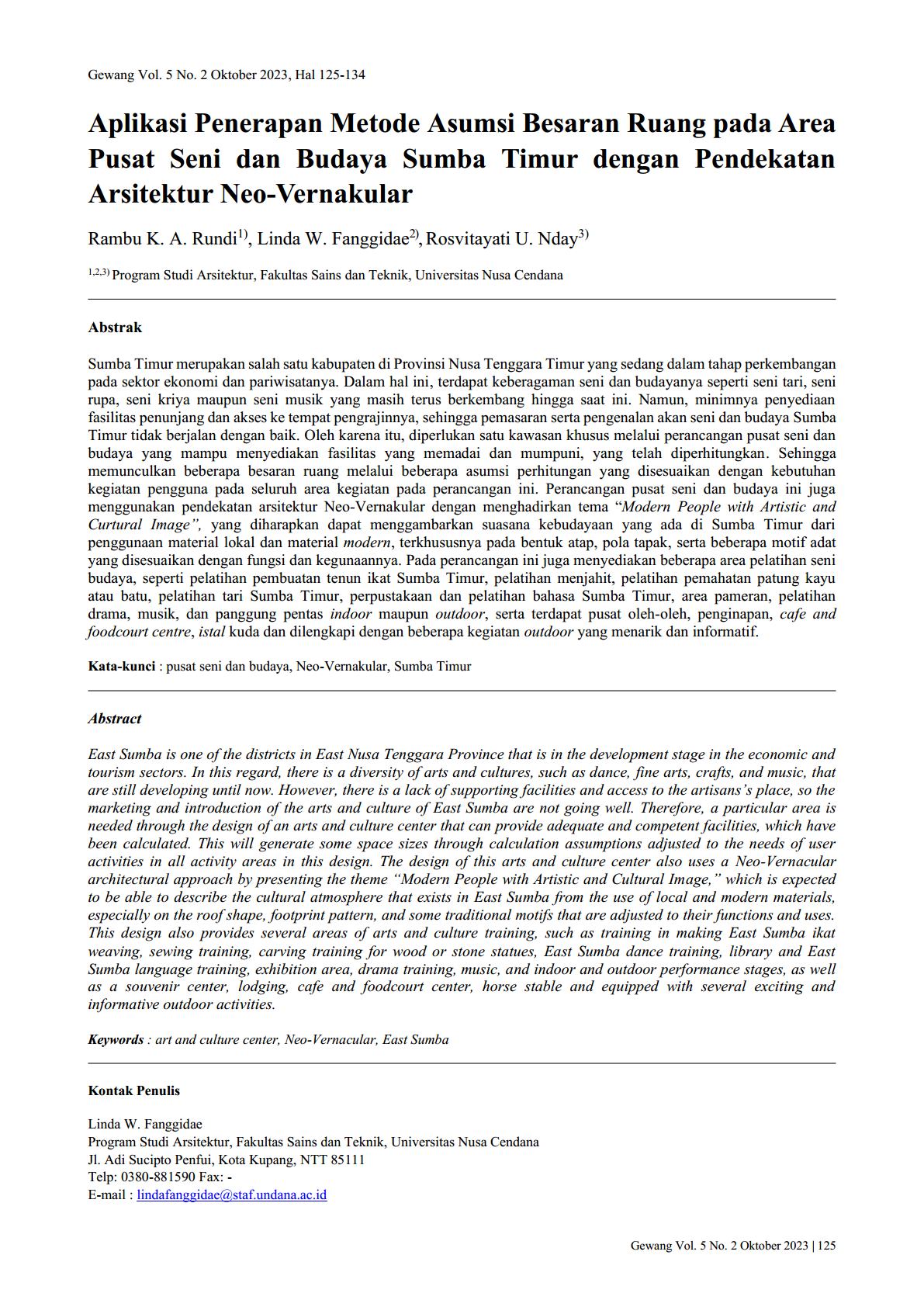Aplikasi Penerapan Metode Asumsi Besaran Ruang pada Area Pusat Seni dan Budaya Sumba Timur dengan Pendekatan Arsitektur Neo-Vernakular
Main Article Content
Abstract
East Sumba is one of the districts in East Nusa Tenggara Province that is in the development stage in the economic and tourism sectors. In this regard, there is a diversity of arts and cultures, such as dance, fine arts, crafts, and music, that are still developing until now. However, there is a lack of supporting facilities and access to the artisans’s place, so the marketing and introduction of the arts and culture of East Sumba are not going well. Therefore, a particular area is needed through the design of an arts and culture center that can provide adequate and competent facilities, which have been calculated. This will generate some space sizes through calculation assumptions adjusted to the needs of user activities in all activity areas in this design. The design of this arts and culture center also uses a Neo-Vernacular architectural approach by presenting the theme “Modern People with Artistic and Cultural Image,” which is expected to be able to describe the cultural atmosphere that exists in East Sumba from the use of local and modern materials, especially on the roof shape, footprint pattern, and some traditional motifs that are adjusted to their functions and uses. This design also provides several areas of arts and culture training, such as training in making East Sumba ikat weaving, sewing training, carving training for wood or stone statues, East Sumba dance training, library and East Sumba language training, exhibition area, drama training, music, and indoor and outdoor performance stages, as well as a souvenir center, lodging, cafe and foodcourt center, horse stable and equipped with several exciting and informative outdoor activities.
Downloads
Article Details
This license enables reusers to distribute, remix, adapt, and build upon the material in any medium or format, so long as attribution is given to the creator. The license allows for commercial use

